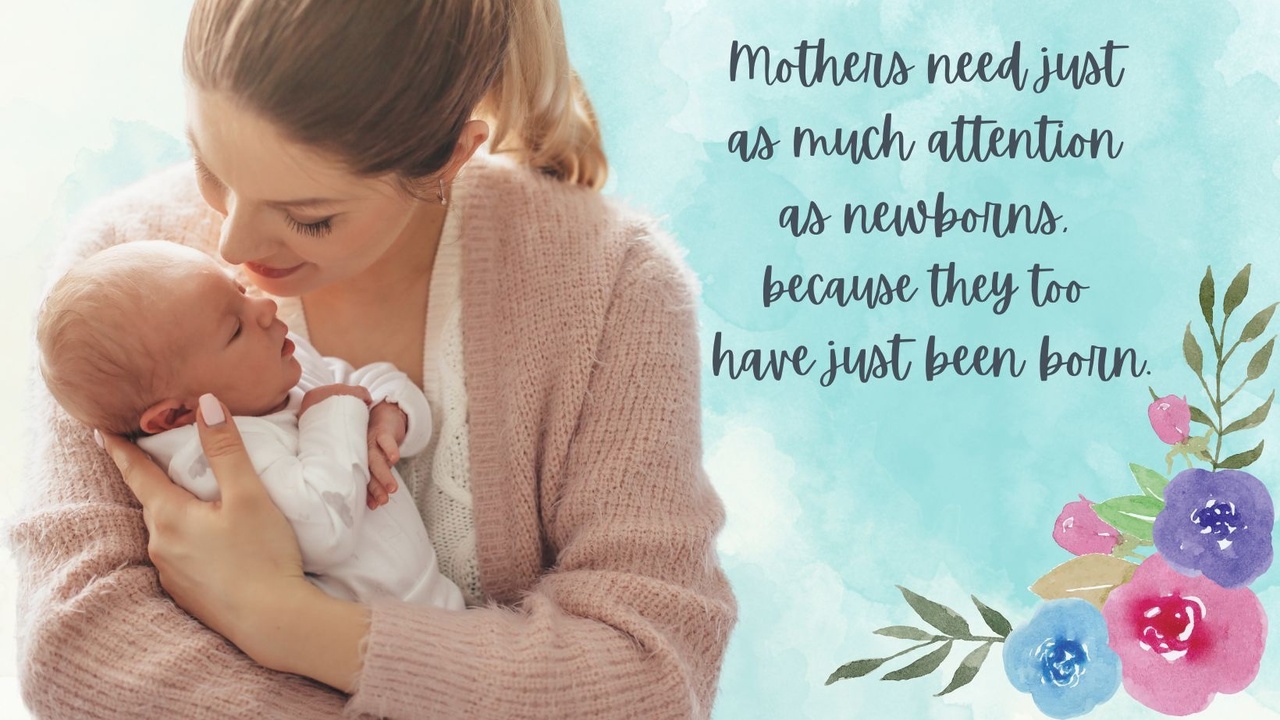Matresence: When Mothers Are Born

In her Ted talk, Reproductive Psychiatrist Alexandra Sacks talks about “matresence,” a term representing the transition to becoming a mother.
Giving birth and becoming a mom is a major experience–one that creates physical, emotional, and social changes for families. Whether becoming a mom for the first, second, third or more time, a woman faces tremendous shifts as she settles into caring for an additional family member.
“When a baby is born, so is a mother–but the natural (and sometimes unsteady) process of transition to motherhood is often silenced by shame or misdiagnosed as postpartum depression,” she says.
Postpartum Depression is very real, affecting approximately 1:7 moms. But the diagnosis doesn’t always fit every woman who may be struggling or adjusting to a new norm after bringing home a newborn.
Caring for a new baby is hard and the addition of a new family member can create lots of shifts in relationships and in the overall dynamics of life. Moms are sleep deprived, exhausted, and hormonal. And they might not hold it all together very well during the matresence transition.
And that’s okay.
Contrary to some of the myths of pregnancy and bringing a new baby into the world, growing a human, giving birth, and navigating life with a newborn aren’t always sunshine and rainbows. They can be hard. And exhausting. And involve major changes that can leave women feeling worn out, defeated, or unprepared.
What they need most is patience, understanding, and support from family, friends, and medical professionals who ask how they are doing and step in when help is needed.
How to Differentiate Matresence from Depression or other Perinatal Mood & Anxiety Disorders
Let’s normalize the struggle that can be life with growing, birthing, and bringing home a new baby.
All moms struggle at various points–feeling moody or frustrated. Life with a baby can be chaotic and unpredictable, and most moms doubt themselves from time-to-time.
If you’re able to reassure yourself when you’re having a bad moment and are able to get back on track after a particularly hard day, you’re likely experiencing the normal ups and downs of matresence and the journey of adjusting to your new norm.
What you may need is more support, stress-management tools, and coping strategies to weather the storm.
But if you’re feeling low or irritable more often than not; are experiencing anxious, intrusive, or scary thoughts; are having trouble bonding with your new baby; feel lost or alone; or believe there’s no hope in sight, you may be facing a Perinatal Mood or Anxiety Disorder (PMAD). There’s help! Get in touch.
Whether you are experiencing a PMAD or the normal process of matresence, this phase won’t last forever. Hang in there, mama. And know your journey is unique, but you are not alone.

